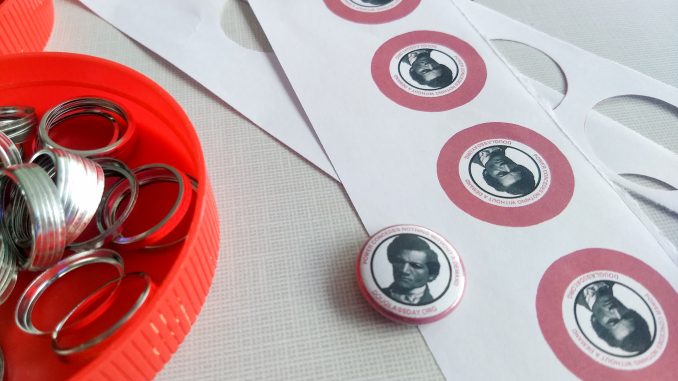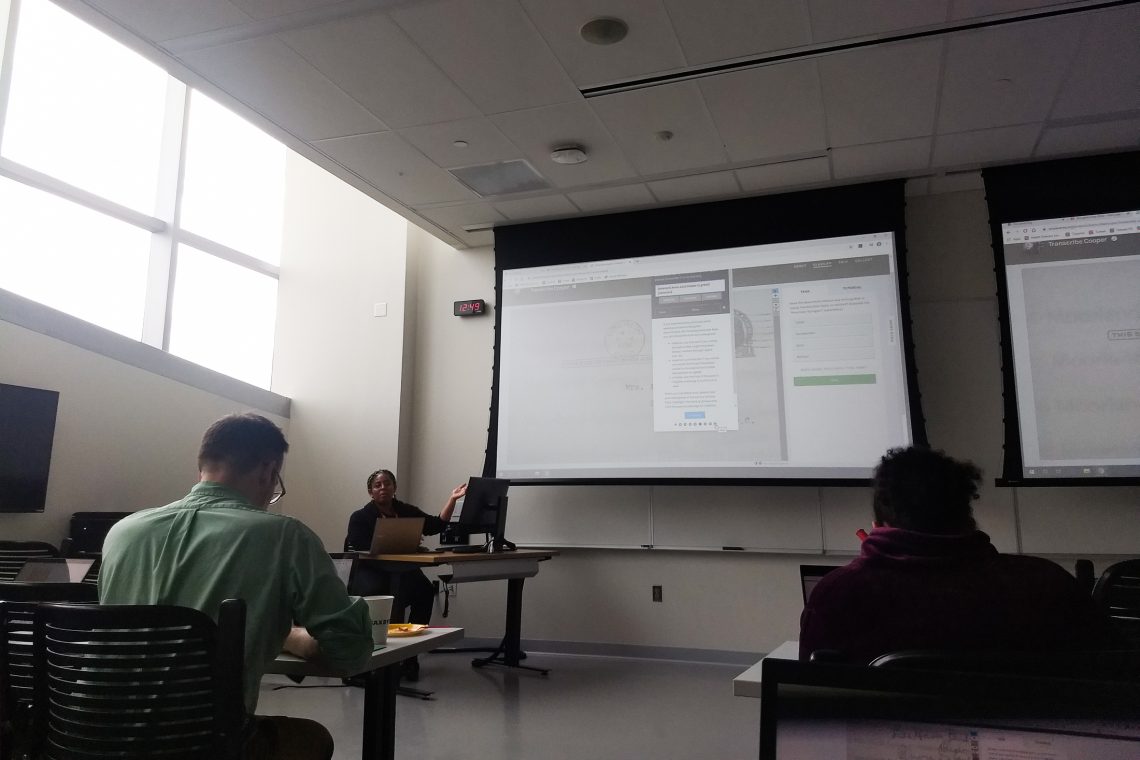
To many, Feb. 14 is Valentine’s Day, a day celebrating love and romance. But it also marks another holiday — the adopted birthday of Frederick Douglass, a Black scholar and activist.
This year, a small crowd of students, faculty and staff gathered at Charles Library to celebrate Frederick Douglass Day by uplifting the work of Anna Julia Cooper, another scholar valued for her contributions to Black academia.
At the event, called “Douglass Day Transcribe-A-Thon,” volunteers worked to convert Cooper’s handwritten or printed papers, including academic work and personal correspondence, into searchable digital transcripts using a web portal called Zooniverse.
Jasmine Clark, a librarian in Charles’ Digital Scholar Studio and 2013 African-American Studies alumna, organized the event with several of her colleagues. Clarke said she saw the event as a matter of representation.
“I wanted to see the library have some solid Black history month programming, but also, in all bluntness, I am one of two Black librarians here and I wanted to make sure we were representing Blackness in the digital humanities,” Clark said.
The transcription work was done as part of the Transcribe Cooper project organized by the Colored Conventions Project, an academic organization that aims to raise the profile of Black activism and academic contributions, according to the organization’s website.
Cooper, born into slavery in 1858, was a “Black feminist leader, educator, intellectual, and activist” and one of the first African-American women in the country to earn a college degree, according to the Colored Conventions Project.
“She is just very representative of this idea of the educated, very driven, but very overlooked, Black scholar,” Clark said. “She covered a lot of topics, not necessarily just Black womanhood.”

Similar transcribe-a-thons were organized at other colleges, including the University of Tennessee Knoxville, University of Pittsburgh and Westfield State University.
Deja Logan, a junior human development and community engagement major, said she enjoyed transcribing.
“It’s really fascinating to me,” Logan said. “It actually made me think of, years beyond now, if they were able to save and go look into our text messages, would they transcribe our texts?”
Clark said she was interested in the transcription project because of the Zooniverse platform it’s hosted on, which is a crowdsourcing program, she said.
“A big tenet of Black studies is the combating of this idea of the ivory tower of the scholarship, this idea of the democratization of knowledge and I think these platforms facilitate that work,” Clark said.
Caitlin Shanley, a librarian and one of the event’s organizers, said Zooniverse had the potential to improve the accessibility of work by members of marginalized groups, who traditionally had less access to publication.
“I’m really interested in projects that can amplify voices that have been silenced in the past by institutions like archives and libraries,” Shanley said. “I think we have a responsibility to try and lift up some of those voices.”


Be the first to comment